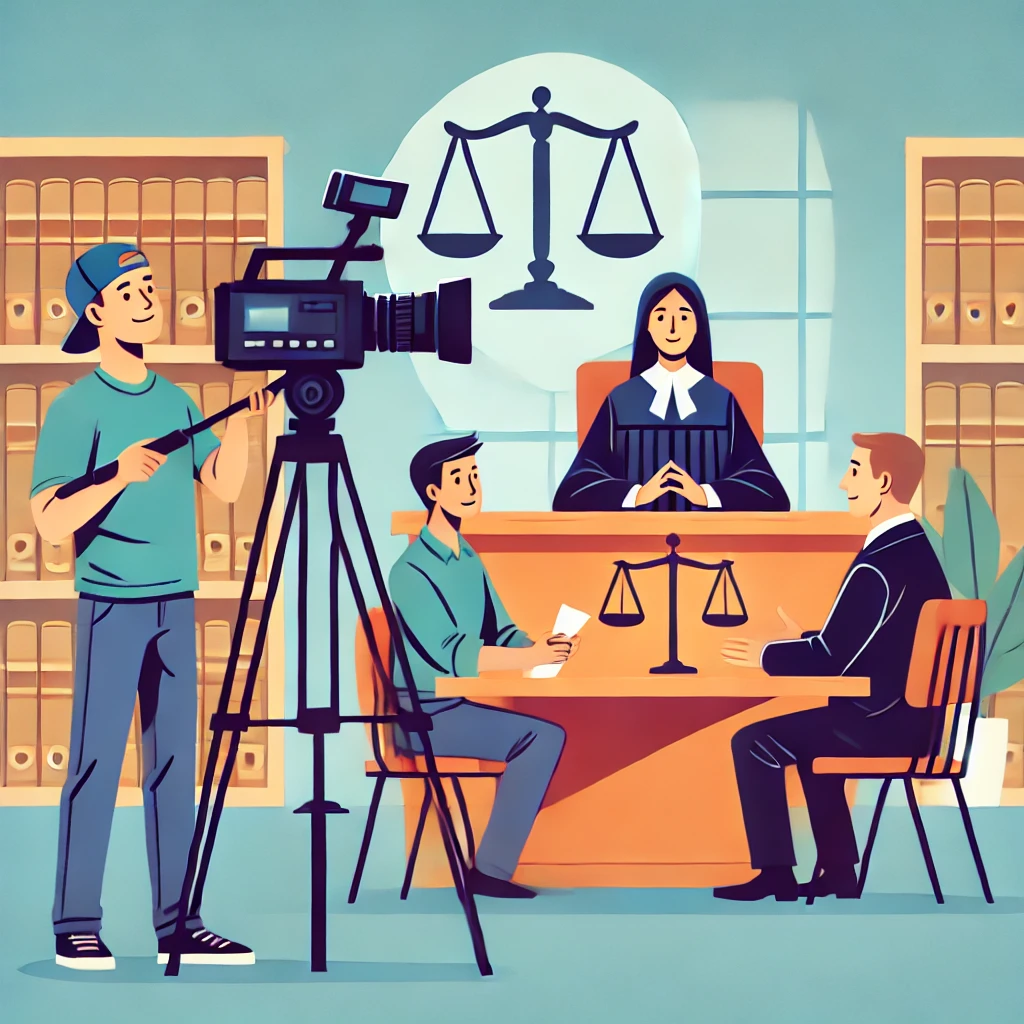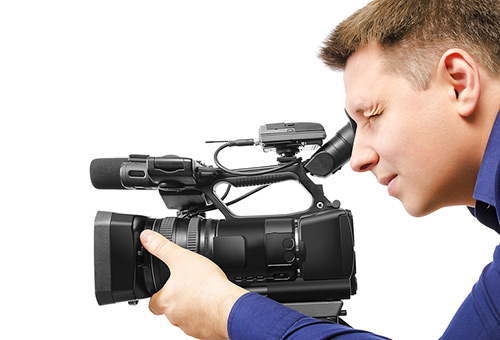The Function of Legal Videography in Depositions and Trials
Legal videography has emerged as an essential device in both depositions and trials, offering a diverse method to documenting witness testimonies. As legal professionals increasingly recognize its value, it motivates a deeper assessment of exactly how these aesthetic documents can influence juror perceptions and trial end results.

Importance of Lawful Videography
Lawful videography plays a critical role in the documentation and presentation of depositions and tests. This specialized area combines technical skills with legal expertise to develop a trustworthy document of procedures that can significantly affect situation results. The visual facet of lawful videography improves the understanding of witness testimony, permitting jurors and courts to observe not only the talked words however also the attitude, emotions, and body language of the witnesses.
In addition, legal videography offers an objective account of events, lessening the capacity for misconception that can happen with composed records alone. This aesthetic documents works as a crucial device throughout trial discussions, helping with a clearer and more influential narrative for both complainants and defendants. Moreover, the ability to replay video clip segments during court proceedings makes it possible for lawful groups to stress vital factors, reinforcing their arguments properly.
The significance of legal videography expands past the courtroom; it also plays an important duty in protecting evidence for future recommendation, whether for appeals or more legal activity. Its assimilation right into the lawful procedure is vital for making certain a reasonable and accurate representation of the facts, eventually adding to the quest of justice.

Process of Legal Videography
While catching the subtleties of depositions and trials, the process of lawful videography includes several essential actions that ensure premium, accurate recordings. An expert lawful videographer prepares by examining the situation products and understanding the certain requirements of the deposition or test. This preparation includes acquainting themselves with the individuals and the context, which assists in recording essential details.
On the day of the recording, the videographer establishes the necessary equipment, which typically consists of high-definition cameras, microphones, and correct illumination. Making certain optimum angles and sound high quality is essential, as it directly affects the efficiency of the recording. The videographer communicates with attorneys and participants to develop methods, making sure that everybody comprehends the recording process.
During the deposition or trial, the videographer thoroughly tape-records the process, paying close attention to both spoken and non-verbal hints. This includes capturing the temperament and reactions of witnesses and lawyers. After the session wraps up, the videographer may modify the footage for clarity and compliance with legal standards, generating an end product that accurately shows the procedures for future reference and usage in legal contexts.
Advantages in Depositions
The incorporation of videography in depositions supplies various benefits that improve the total procedure of collecting proof. One primary benefit is the ability to catch witness testimonies with aesthetic and acoustic integrity, offering an extra accurate representation of the witness's temperament, tone, and body language. This multidimensional method enables lawyers and courts to evaluate reputation extra properly than typical written records alone.
Furthermore, videographed depositions act as an effective tool for protecting testament. Needs to a witness become not available for trial, their videotaped deposition can be played in court, making sure that their proof remains available and pertinent. This aspect substantially decreases the risk of losing crucial info that might impact instance outcomes.

Last but not least, videography enhances the general professionalism and trust of the deposition procedure, instilling confidence in clients pertaining to the thoroughness of their lawful representation (legal videography). By leveraging innovation, lawyers can considerably boost the efficiency of depositions
Effect on Tests
In several tests, the integration of videography can significantly affect the discussion of proof and the jury's assumption. Lawful videography records witness testaments and essential evidence in a dynamic style, permitting jurors to engage with the material on several levels. This visual element improves the narration facet of a test, providing context and psychological vibration that typical text-based proof may lack.
Additionally, video clip recordings can work as powerful Website devices for impeachment during interrogation. When discrepancies emerge between a witness's previous declarations and their court room testament, video clip proof offers an objective referral that can guide jurors' viewpoints. This immediacy and quality can reinforce the credibility of an event's narrative while all at once weakening opposing arguments.

Future Trends in Legal Videography
As we look towards the future of legal videography, numerous arising fads promise to improve its function within the court room. One significant fad is the integration of synthetic intelligence (AI) in video clip evaluation and modifying. AI can simplify the procedure of recognizing vital minutes in taped depositions, enabling attorneys to promptly access pertinent material, thus improving effectiveness in case prep work.
Additionally, the increase of virtual fact (VR) and augmented reality (AR) modern technologies is expected to change exactly how jurors experience evidence. legal videography. By immersing jurors in a substitute atmosphere, these innovations can offer an extra profound understanding of complex situations, bring about even more enlightened deliberations
In addition, the enhancing demand for remote depositions, sped up by the COVID-19 pandemic, will likely proceed. Lawful videographers will require to adapt to new software and platforms to make sure premium recordings in digital settings.
Lastly, the expanding emphasis on data safety and security will certainly require more stringent methods for saving and sharing video clip evidence. As the lawful landscape evolves, legal videographers must stay abreast of these patterns to maintain their importance and performance in the judicial procedure.
Conclusion
In summary, legal videography serves a vital feature in the judicial procedure, enhancing the stability of depositions find more information and trials. By capturing the nuances of witness testimonies, this medium not only maintains important evidence yet also help in providing info successfully to jurors. The significance of aesthetic documentation in evaluating integrity and promoting interrogation can not be overstated. As innovation remains to progress, lawful videography is poised to additional transform its role within the legal landscape.